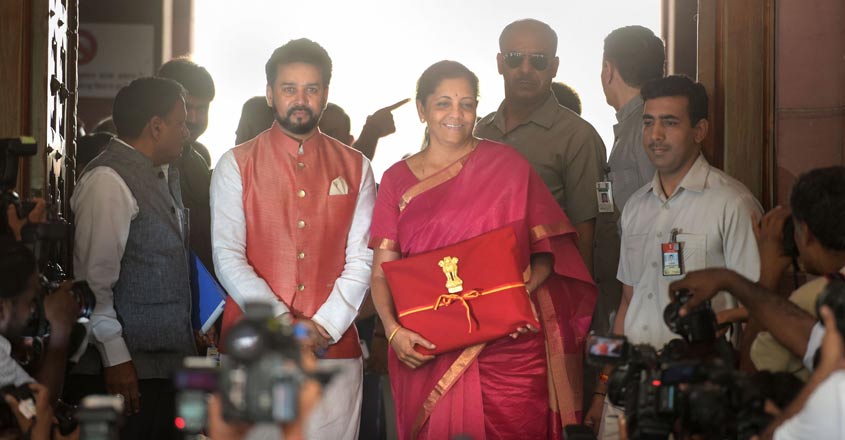
Kochi: Eminent economist Dr Surjit S Bhalla said that several of the developed countries do not indulge in budget presentation.
"Have you ever heard of a budget in USA or Britain? None of them indulge in this 'annual tamasha' called the budget. It garners such importance only in India," he pointed out during the 20th Malayala Manorama Budget speech at Le Meridien Hotel in Kochi on Monday.
Recounting the evolution of the budget over the years, the economist said that it was more of an accounts' book in earlier years. "It would dole out figures on fiscal deficit and revenue deficit. The rise in taxation and import-export expenditures also figured in the document. Nowadays, the relevance of such figures have reduced. Indirect tax calculations are not presented due to the Goods and Services Tax (GST). Data on direct taxes have also reduced.”
"Earlier, it was possible to know which all industrialists were in the good books and bad books of the government based on the Budget proposals. Tax on the industries of those in the good books would be reduced, while it would be increased for others. This was the Budget of the old days. These practices have been done away with," he recollected.
Though the importance of figures has reduced, the data is not completely omitted in the present-day Budget.
"People with higher income were slapped with higher taxes during this budget as well. The custom duty on gold and cashew were also increased," he pointed out.
"In the upcoming years, the increase/decrease of such taxes will not figure in the Budget. Permanent rates would continue for years. The Budget would cease to be a ledger book on receipt and expenditure," he said.
Dr Bhalla also pointed out that the current number acquired by the BJP-led National Democratic Alliance (NDA) in the Lok Sabha was equivalent to the numbers in the ruling front during the Nehru-Indra Gandhi era. "This means that they can go ahead with experiments. The expectations are also high. There is definitely a vision in this time's budget. But the expectations emanating from it are not realistic,” he concluded.
Target of $ 5 trillion economy achievable
"Some are apprehensive of the tall target. However, it is not impossible. Certain people argue that only if India's Gross domestic product (GDP) grows at 10 per cent annually, can we achieve this. However, even if the growth rate is lower than that, it is possible to meet the target," the economist said during the 20th Malayala Manorama Budget speech at the Le Meridien Hotel in Kochi on Monday.
"If one were to look at the graph of the rupee exchange rate vis-a-vis the US dollar, it can be noticed that the rupee has bettered its position. As of now, the Indian economy is at $ 3.1 trillion. Even if we can acquire a slightly better financial growth, then the country can achieve the target of $ 5 trillion economy by 2024-25,” he explained.
Rise in tax can backfire
The economist, however, said that he did not agree with the Union Budget's proposal to impose an additional surcharge on those with an annual income of more than Rs 2 crore.
"The Budget proposed to raise the effective income tax rate on those earning between Rs 2 to 5 crore annually to 39 per cent. And people with an annual income of more than Rs 5 crore to 43 per cent. At the same time, the corporate tax for 99.3 per cent companies was kept at only 25 per cent," he added.
"As the tax increases, the asset growth decreases. Only with asset growth, the investment and job opportunities would rise," he reminded.
Dr Bhalla pointed out that the rise in tax would only lead to more tax evasion. "The government's aim should be to prompt more people to follow the tax norms," he said.
Sovereign bonds get a thumbs up
Dr Bhalla also lauded the budget proposal to raise funds through sale of sovereign bonds at overseas markets.
"This would help in the lowering of interest rates thereby, giving a boost to the industrial sector," he pointed out.
Soon after the Budget, there were reports that the government planned to accumulate $ 10 billion through bonds. Sources in the finance ministry said that the funds accumulated via bonds would be less than 10-15 per cent of the total borrowing. The government is likely to set in motion the procedures for this in the coming weeks.


